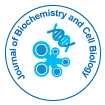Nosso grupo organiza mais de 3.000 Séries de conferências Eventos todos os anos nos EUA, Europa e outros países. Ásia com o apoio de mais 1.000 Sociedades e publica mais de 700 Acesso aberto Periódicos que contém mais de 50.000 personalidades eminentes, cientistas de renome como membros do conselho editorial.
Periódicos de acesso aberto ganhando mais leitores e citações
700 periódicos e 15 milhões de leitores Cada periódico está obtendo mais de 25.000 leitores
Indexado em
- Publons
- ICMJE
Links Úteis
Diários de acesso aberto
Compartilhe esta página
Abstrato
Differentiation of Acute Promyelocytic Leukemia Cells by All-trans Retinoic Acid and A Cyclin-Dependent Kinase Inhibitor Involves Dissociation of a CDK4/C/EBP ε Complex
Tsolkas G, Komninou D, Papanikolaou NA
Cell differentiation involves exiting the cell cycle and activating gene programs that are responsible for differentiation. The cyclin-dependent CDK4 kinase regulates the cell cycle at the G1/S stage and is an important molecule that contributes to tumorigenic mechanisms in nearly all neoplasms. CDK4 links the cell cycle to mitogenic/anti-mitogenic signals with unknown mechanisms cooperating with Cyclin D1. The cellular "decision" for differentiation or continuous proliferation occurs predominantly in the G1/S phase with mechanisms dependent on the type of cells with CDK4 kinase having a key role. We have recently demonstrated that the combination of sub-pharmaceutical doses of retinoic acid (ATPA) and CDK1/CDK2 inhibitors in acute promyelocytic leukemia (APL) cells induces degradation of CDK4 protein by simultaneously differentiating cells into granulocytes. In this paper we report that in proliferating NB4 cells, C/EBPε and CDK4 interact whereas treatment of the cells with a CDK1/CDK2 inhibitor and sub-pharmacological levels of all-trans retinoic acid leads to dissociation of the two proteins concomitantly with granulocytic differentiation of the leukemic cells. Our data suggest that CDK4/C/EBPε complexes may contribute to APL cell proliferation and that their dissociation may be required for differentiation.
Diários por Assunto
- Agro e Aquicultura
- Alimentação e Nutrição
- Bioquímica
- Ciência da Computação
- Ciência de materiais
- Ciencias ambientais
- Ciências Clínicas
- Ciências Farmacêuticas
- Ciências gerais
- Ciências Médicas
- Ciências Sociais e Políticas
- Ciências veterinarias
- Economia e Contabilidade
- Enfermagem e cuidados de saúde
- Engenharia
- Engenheiro químico
- Física
- Genética e Biologia Molecular
- Geologia e Ciências da Terra
- Gestão de negócios
- Imunologia e Microbiologia
- Informática
- Matemática
- Química
Revistas clínicas e médicas
- Anestesiologia
- Assistência médica
- Biologia molecular
- Cardiologia
- Cirurgia
- Dermatologia
- Diabetes e Endocrinologia
- Doenças infecciosas
- Enfermagem
- Fisioterapia e Reabilitação
- Gastroenterologia
- Genética
- Hematologia
- Imunologia
- Medicamento
- Medicina Reprodutiva
- Microbiologia
- Nefrologia
- Neurologia
- Odontologia
- Oftalmologia
- Oncologia
- Ortopedia
- Pediatria
- Pesquisa Clinica
- Pneumologia
- Psiquiatria
- Toxicologia

 English
English  Spanish
Spanish  Chinese
Chinese  Russian
Russian  German
German  French
French  Japanese
Japanese  Hindi
Hindi